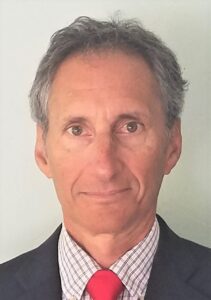By Joseph Bonasia
I asked the retired professor at the Glover Bight Trail shelter in Southwest Florida why he was there.
“This is a place for new beginnings,” he said. “This is a place of contemplation. I can think clearly here.”
Before us, mullet were jumping in the Caloosahatchee River. Osprey were calling. The air was filled with the primal fragrance of swamp, and paw prints gave evidence a raccoon had already come and gone.

Another morning at that same spot in Cape Coral, I asked a Massachusetts snowbird the same question. Why had he come?
“For the peace and quiet.”
“You can’t get that at home in a corner room of your house with the door closed?” I asked.
He shook his head. “This is different. This place is beautiful.”
Yet another morning, I came upon a young woman writing in her journal. She would peer out over the scene and write, then peer out and write again. I asked her the same question.
“Coming here is my ‘soul–cation,’” she said, smiling broadly. “I love nature.”
Glover Bight has that impact upon people, as do so many Florida trails and waterways.
A shelter sign notes the importance of mangrove forests and eastern oysters in stabilizing our marine ecosystem. It says 90 percent of local oyster reefs have been lost. Mangroves are threatened, too, because of development, dredging and water pollution.
People don’t walk this trail to learn about eastern oysters, the varieties of mangroves or other scientific information. While it’s more important than ever that society knows such things, it is not what people seek.
We seek — we need — an intimate connection with the natural world. A love of nature is in our DNA, the evolutionary result of having lived 99.9% of our existence outdoors. In our psyche and souls is the imprint of having looked upon blue water millions of times, smelled the primal smell of swamp millions of times, and followed softly laid pawprints millions of times.
It’s to satisfy this need to connect to nature that millions visit Florida yearly.
“I feel very close to God when I’m surrounded by nature,” a student I worked with once wrote. “I love being alone by the water or hidden in the trees. I feel calm. I enjoy the beauty of life and being able to experience it.”
Scientists call this innate love of nature “biophilia.” Studies indicate that the human need for nature is linked not just to the material exploitation, but to the influence of the natural world on our emotional, cognitive, aesthetic, and spiritual development. An intimate relationship with nature is vital to human well-being — vital to being human.
However, ecosystems are in crisis worldwide, due, in large measure, to unsustainable economic, cultural and legal paradigms. Here in Florida, thousands of waterways are chronically polluted for these same reasons. We need new paradigms that will restore and conserve the natural world for future generations.
“As never before in history,” asserts the Earth Charter, an international effort to build a just, sustainable, and peaceful global society, “common destiny beckons us to seek a new beginning.”
As that retired professor and so many others intuitively understand, that new beginning ultimately lies in what is so fundamentally human: our innate love of the natural world.
Joseph Bonasia is Vice-Chair of the Florida Rights of Nature Network and board member of the SWFL RESET Center.



